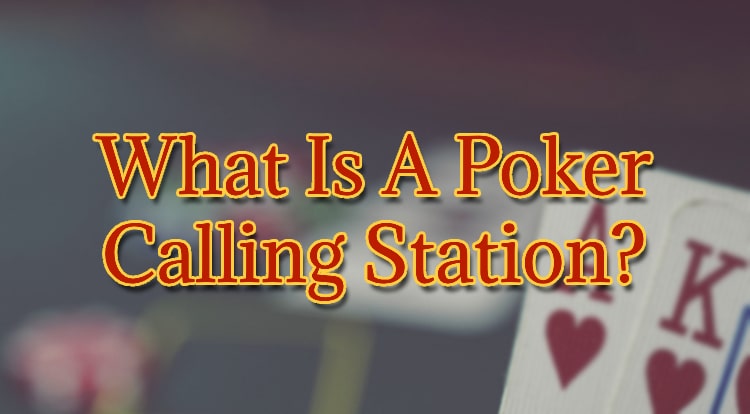
In the dynamic world of poker, understanding your opponent is as crucial as knowing the rules of the game. One type of player you might encounter is the "poker calling station". This blog post will delve into what a calling station is, as well as explore strategies to effectively play against calling stations, offering insights to potentially help you turn these encounters into opportunities.
Whether you're new to poker or looking to refine your strategy, this UK Online Slots casino guide seeks to provide valuable information for navigating poker games with calling stations.
What Is A Calling Station In Poker?
In poker, a "calling station" is a term used to describe a player who tends to call bets (i.e. match those made by other players) very often but rarely takes the initiative to raise a bet or fold.
Imagine someone who, instead of making decisive moves, prefers to stay in the game by placing the minimum qualifying bets to see the next card, hoping the draw works in their favour. This strategy, or lack thereof, means they're not actively trying to influence the game's outcome with aggressive plays or strategic folds. Calling stations play a passive role, reacting rather than acting.
While this might seem like a safe approach, it can sometimes lead to them participating in hands they should have exited early on. Understanding how to identify and exploit the passive nature of calling stations can give you a significant advantage in poker games, turning their reluctance to take bold actions into your opportunity to potentially control the game's flow.
How To Play Against Poker Calling Stations?
Playing against poker calling stations requires a shift in strategy to try to take advantage of their passive play style. Here are some commonly used tactics that may help if facing a calling station:
- Value Bet: Since calling stations rarely fold, increase your bets when you have a strong hand. This way, you can potentially maximise your winnings by causing them to have to bet more in order to call, and they may do so with a potentially inferior hand.
- Avoid Bluffing: Bluffing is less effective against calling stations because they're prone to call bets regardless of their hand's strength. Save your bluffs for more responsive players.
- Simplify Your Game: Focus on playing straightforward poker. If you have a good hand, bet for value; if not, consider checking or folding. Complex strategies often lose their effectiveness against calling stations.
- Patience is Key: Finally, exercise patience. Calling stations can sometimes catch a strong hand and win pots, but over time, consistent value betting with strong hands can help get an edge over these more passive players.
Adjusting your approach to exploit the calling station's tendencies could allow you to control the game's pace and potentially increase your chances of winning against them.
Conclusion
In conclusion, understanding and adapting to different player types in poker is crucial for success. A calling station is a passive player who frequently calls bets but rarely raises or folds. If facing a calling station, remember to focus on value betting with strong hands, minimise bluffing, and keep your strategy straightforward. Patience is essential, as their playstyle can sometimes lead to unexpected losses.
However, by exploiting their reluctance to fold and their tendency to passively participate in hands, you can turn these encounters into potential winning opportunities, enhancing your overall poker strategy and gameplay.
Please remember to gamble responsibly and never chase your losses.
